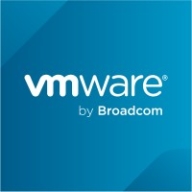

Teradata and VMware Tanzu Data Solutions compete in the data solutions market. Teradata is likely leading in large-scale structured data environments due to its strong processing capabilities and tools.
Features: Teradata is known for its automated workload management, rapid query processing, and massive parallel processing architecture. VMware Tanzu provides robust open-source options, strong integration for big data and cloud environments, and cost-effective scalability.
Room for Improvement: Teradata could enhance scalability, lower costs, and improve integration with newer data science features. VMware Tanzu might improve transactional processing, documentation, and cloud-native application integration.
Ease of Deployment and Customer Service: Teradata excels in on-premises and hybrid cloud deployments with strong customer support but slower response times. VMware Tanzu offers effective deployment in public cloud environments, with flexible adaptability due to open-source advantages.
Pricing and ROI: Teradata is positioned as a high-cost, premium product offering substantial ROI through increased productivity, attracting larger enterprises. VMware Tanzu benefits from competitive pricing due to its open-source nature, providing value with flexible, cost-efficient solutions.
At least fifteen to twenty percent of our time has been saved using Teradata, which has positively affected team productivity and business outcomes.
Independent research showed that Teradata VantageCloud users achieved an average ROI of 427% across three years with payback under a year, demonstrating the platform's ability to deliver a strong financial return.
We have realized a return on investment, with a reduction of staff from 27 to eight, and our current return on investment is approximately 14%.
I have seen a return on investment with VMware Tanzu Data Solutions because of its speed and the robustness of the environment.
The customer support for Teradata has been great.
They are responsive and knowledgeable, and the documentation is very helpful.
Customer support is very good, rated eight out of ten under our essential agreement.
Customer support for VMware Tanzu Data Solutions has been good with me and with VMware, including Broadcasts.
Whenever we need more resources, we can add that in Teradata, and when not needed, we can scale it down as well.
This flexibility allows organizations to scale according to their needs, balancing performance, cost, and compliance requirements.
This expansion can occur without incurring downtime or taking systems offline.
Most of our functions or jobs are queued due to that.
Its massively parallel process architecture allows the platform to distribute workload efficiently, enabling organizations to run heavy analytic queries without compromising speed or stability.
I find the stability to be almost a ten out of ten.
The workload management and software maturity provide a reliable system.
I have faced stability issues, mainly due to the storage my organization has, though I am not sure if it's specifically due to the tool.
I want to highlight two features for improvement: first, storing data in various formats without requiring a tabular structure, accommodating unstructured data; and second, adding AI ML features to better integrate Gen AI, LLM concepts, and user-friendly experiences such as text-to-SQL capabilities.
Unlike SQL and Oracle, which have in-built replication capabilities, we don't have similar functionality with Teradata.
The most challenging aspect is finding Teradata resources, so we are focusing on internal training and looking for more Teradata experts.
VMware Tanzu Data Solutions can be improved as it is better and faster for administration and clusters, Dockers, and Kubernetes.
Teradata is much more expensive than SQL, which is well-performed and cheaper.
Initially, it may seem expensive compared to similar cloud databases, however, it offers significant value in performance, stability, and overall output once in use.
Role-based access control (RBAC), strong audit and compliance features, high availability, fault tolerance, and encrypted data at rest and in-transit are key features.
My experience with pricing, setup cost, and licensing for VMware Tanzu Data Solutions is that it is a bit expensive.
Teradata's security helps our organization meet compliance requirements such as GDPR and IFRS, and it is particularly essential for revenue contracting or revenue recognition.
Its architecture allows information to be processed efficiently while maintaining stable performance, even in highly demanding environments.
It facilitates data integration, where we integrate and analyze data from various sources, making it a powerful and high-quality reliable solution for the company.
The principal aspect is the creation of Kubernetes clusters.
The product is not complex; I do not have to create stored procedures, functions, or views.
| Product | Market Share (%) |
|---|---|
| Teradata | 9.4% |
| VMware Tanzu Data Solutions | 4.0% |
| Other | 86.6% |


| Company Size | Count |
|---|---|
| Small Business | 28 |
| Midsize Enterprise | 13 |
| Large Enterprise | 52 |
| Company Size | Count |
|---|---|
| Small Business | 30 |
| Midsize Enterprise | 10 |
| Large Enterprise | 49 |
Teradata is a powerful tool for handling substantial data volumes with its parallel processing architecture, supporting both cloud and on-premise environments efficiently. It offers impressive capabilities for fast query processing, data integration, and real-time reporting, making it suitable for diverse industrial applications.
Known for its robust parallel processing capabilities, Teradata effectively manages large datasets and provides adaptable deployment across cloud and on-premise setups. It enhances performance and scalability with features like advanced query tuning, workload management, and strong security. Users appreciate its ease of use and automation features which support real-time data reporting. The optimizer and intelligent partitioning help improve query speed and efficiency, while multi-temperature data management optimizes data handling.
What are the key features of Teradata?
What benefits and ROI do users look for?
In the finance, retail, and government sectors, Teradata is employed for data warehousing, business intelligence, and analytical processing. It handles vast datasets for activities like customer behavior modeling and enterprise data integration. Supporting efficient reporting and analytics, Teradata enhances data storage and processing, whether deployed on-premise or on cloud platforms.
VMware Tanzu is a robust platform tailored for data warehousing, complex analytics, BI applications, and predictive analytics. It excels in scalability, performance, and parallel processing, enhancing data handling efficiency. Users report significant productivity improvements and streamlined operations, making it ideal for comprehensive data solutions.
We monitor all Data Warehouse reviews to prevent fraudulent reviews and keep review quality high. We do not post reviews by company employees or direct competitors. We validate each review for authenticity via cross-reference with LinkedIn, and personal follow-up with the reviewer when necessary.